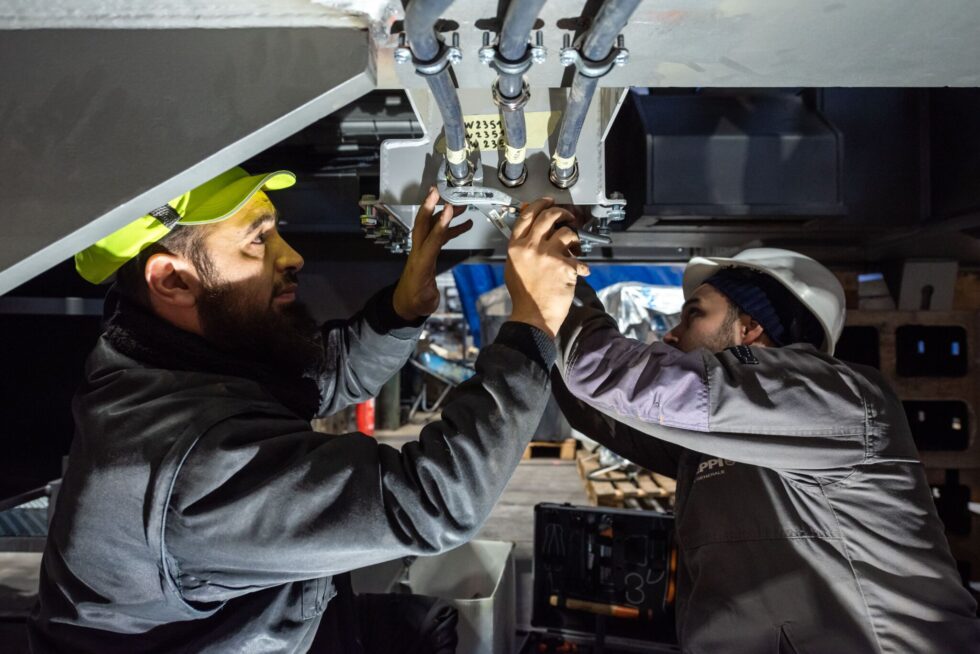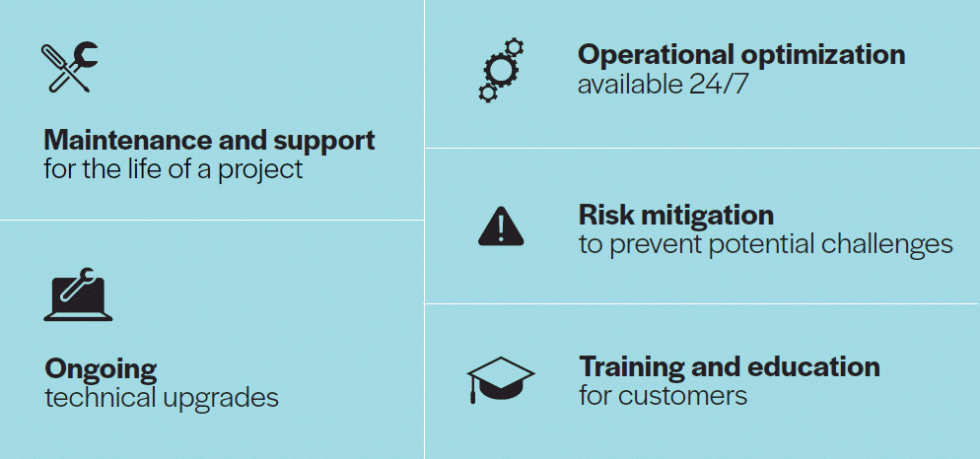Top 5 Service Capabilities Critical for Prolonging the Life of Hydrogen Projects

August 29th 2024
In the renewable energy sector, hydrogen projects have emerged as transformative solutions, promising clean and sustainable power. However, in terms of widespread interest, hydrogen has historically received less attention than other renewable energy sources. Now, with hydrogen enjoying “unprecedented momentum” according to the IEA, companies are finding themselves navigating uncharted territory—and wondering what steps are necessary to ensure the prolonged and optimal performance of their projects.
This is where the importance of services comes into play to protect companies’ significant investment in hydrogen equipment. Comprehensive service offerings, encompassing maintenance, support, upgrades, and operational optimization, become the linchpin for the longevity and success of hydrogen projects. And as organizations continue their hydrogen journey, five key service capabilities will be especially critical for resilient and enduring hydrogen infrastructure.

1. Maintenance and support for the life of a project
The first capability crucial for prolonging the life of a hydrogen project is a robust maintenance and support system—ideally provided through a long-term service agreement that companies know they can rely on. Regular and proactive maintenance is essential for identifying and addressing potential issues before they escalate, maximizing availability and optimizing overall system efficiency. And when maintenance and repairs are required, a responsive support team can coordinate timely interventions that significantly minimize disruptions, enhancing the reliability of hydrogen electrolyzers. Service-oriented OEMs are particularly well-equipped to provide this level of support, thanks to in-depth knowledge of hydrogen technology that ensures that all components continue to function at their peak.
2. Ongoing technical upgrades
As technology advances, regularly incorporating upgrades results in greater and more sustained efficiency of hydrogen electrolyzers, further protecting your investment. On the service side, providers play a pivotal role in this by offering regular updates where possible—such as improving the monitoring and control systems or enhancing stack components like membranes, catalysts, or electrodes. These adjustments optimize the electrolyzer’s operation, extend its lifespan, and ensure compatibility with emerging technologies, essentially future-proofing the system for long-term success.
3. Operational optimization available 24/7
Operational optimization is central to the longevity of any hydrogen project. This can typically be achieved through the installation of remote monitoring systems, which can handle real-time tracking of operational parameters and issue detection. For instance, customers of John Cockerill Hydrogen benefit from John’s Cockpit, an advanced analytics tool that connects their assets and collects and uses data to improve performance over time. In addition, a 24/7 call center for technical support and issue resolution means a more rapid response, should any unforeseen challenges occur. This proactive approach to service guarantees that any operational hiccups are addressed promptly, preventing cascading effects that could impact the entire project.

John Cockpit
4. Risk mitigation to prevent potential challenges
Hydrogen projects, like any complex infrastructure, are susceptible to various risks, like potential safety hazards due to the combustible nature of hydrogen, challenges in handling and transporting hydrogen, as well as the need for compliance with stringent regulations. Technical issues, such as unexpected breakdowns or component failures, also pose a threat. And as hydrogen systems become increasingly connected, cybersecurity risks necessitate robust measures to protect against potential attacks. Service providers specializing in hydrogen technology are adept at identifying these possibilities and developing contingency plans and strategies to mitigate them effectively. With a comprehensive service plan that includes risk assessment and management, companies can create a safe, reliable, and sustainable environment for the operation of their hydrogen electrolyzers.
5. Training and education for customers
One often underestimated but critical aspect of service is training and education for the customer. As hydrogen projects evolve, it is essential that those regularly operating and maintaining electrolyzers are equipped with the knowledge and skills needed to run the unit safely and more effectively. Service providers may offer training programs that cover all the intricacies of running and maintaining hydrogen equipment. In delivering this level of electrolyzer education, they can then in turn guarantee that personnel are capable of making the right decisions to optimize the system’s performance and safety for the long term.
Nurturing hydrogen projects for years to come
While electrolyzer hardware is certainly an essential part, service is what sustains and prolongs the life of hydrogen projects. A comprehensive service strategy, encompassing maintenance and support, tech upgrades, operational optimization, risk mitigation, and education, forms the foundation for the successful and enduring operation of hydrogen infrastructure. As the world increasingly turns to hydrogen in the transition to clean energy, a robust service framework can make all the difference in ensuring that hydrogen projects thrive and contribute substantially to a sustainable and environmentally conscious energy landscape.

